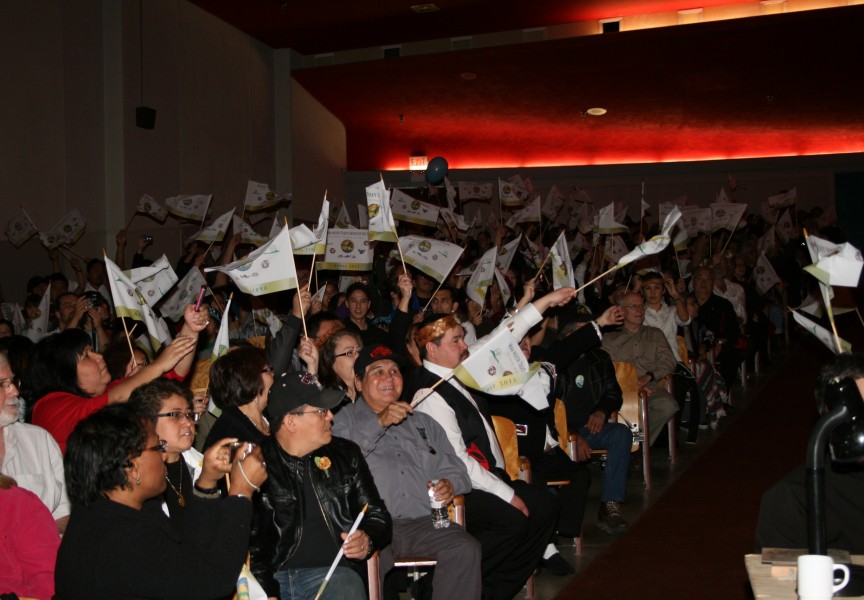You’re going through an Indigenous-owned gas station and realize that your status card has expired. Maybe you come from a remote First Nation and can’t get home to get your status card renewed. You ask around where you can get a card made in urban areas, without solid answers.
Many Indigenous people are finding it more difficult to get or renew expired Indian Status Cards, which are required for health services, tax exemptions at some businesses and for crossing the Canada/US border.
Status cards have expiry dates – five years for the peach-coloured Status Card and 10 years for the Secured Certificate of Indian Status for adults (five years for SCIS for children).
This means people must find agencies that provide status card services either at their home First Nation or in an urban setting where those services are provided, like the Nuu-chah-nulth Tribal Council for the First Nations that help fund the service.
Another alternative is applying for a card by mail or online in a multi-step process that can take several months. But going through this process can be daunting with all the variables…which card you apply for, your age, your ability to get a passport-style photo, your access to equipment and mail services, finding a guarantor and the rules for that…the list goes on.
But there’s a new option that promises to help you apply for your card with relative ease.
OneFeather, founded by Lawrence Lewis of We Wai Kai Nation, is a technology company offering to help nations through digital services, like election and voting assistance, community engagement, and banking solutions.
Not only that, they also offer the only online status card service in Canada that is simple and affordable.
“OneFeather’s status card (SCIS) application service allows Indigenous peoples to renew, replace, or apply online,” says OneFeather in a news release.
“Our status card application process works to eliminate the pains of systemic racism by increasing accessibility,” Lawrence Lewis, CEO of OneFeather, says.
Users of the service can open an account on OneFeather.ca.
“Individuals verify their identity by uploading a selfie holding their current status card or picture ID and fill in the same information that would appear on the Government of Canada application,” according to OneFeather.
The only equipment the client needs once they’ve opened their OneFeather account is a mobile device or computer that can take a picture and has internet connection. They will need a guarantor with a valid certificate of Indian Status to verify their identity.
A guarantor is someone 18 years or older who has known you for at least two years and can answer basic questions about you should they be contacted by ISC. A guarantor must have a valid certificate of Indian Status and be employed by or representing an Indigenous organization.
Your guarantor will be required to sign a declaration confirming your identity.
To try the service, go to https://www.onefeather.ca/ and follow the steps. You will need an email address to verify your identity when you open your OneFeather account.
Following the prompts, you can enter your status number and contact information. To complete the process, you will need to have the ability to take and upload photographs. On online service payment of $15 is required to apply online for your Secure Certificate of Indian Status.
For now, the service is only available to registered Indians ages 16 and over. OneFeather hopes to be able to expand its services in the near future.
Errors on your status card application can delay your renewal for months. OneFeather offers a no-risk guarantee that the status card application will be accepted or renewed.
If the application is rejected by the government, OneFeather promises to issue an immediate refund.
“And a representative personally works with them to have their application resubmitted,” states the company. “OneFeather will also offer a tracking service where individuals can see average wait times for fulfilment of their status card.”
Due to the pandemic, Indigenous Services Canada (ISC) has extended the validity date of status cards until further notice.
Service providers should accept status cards, or Temporary Confirmation of Registration Documents (TCRDs) with identification, even if the renewal or expiry date has passed.







